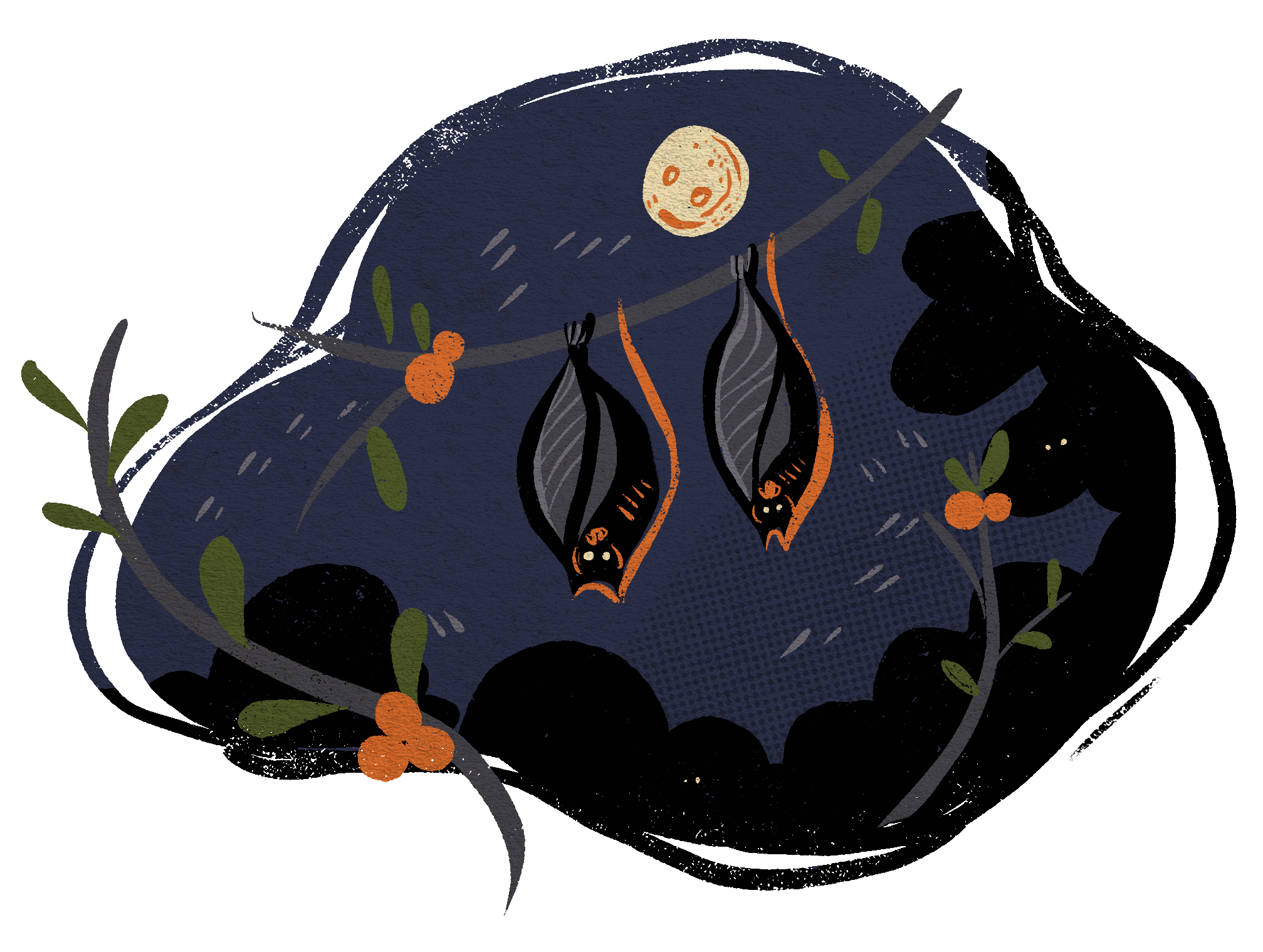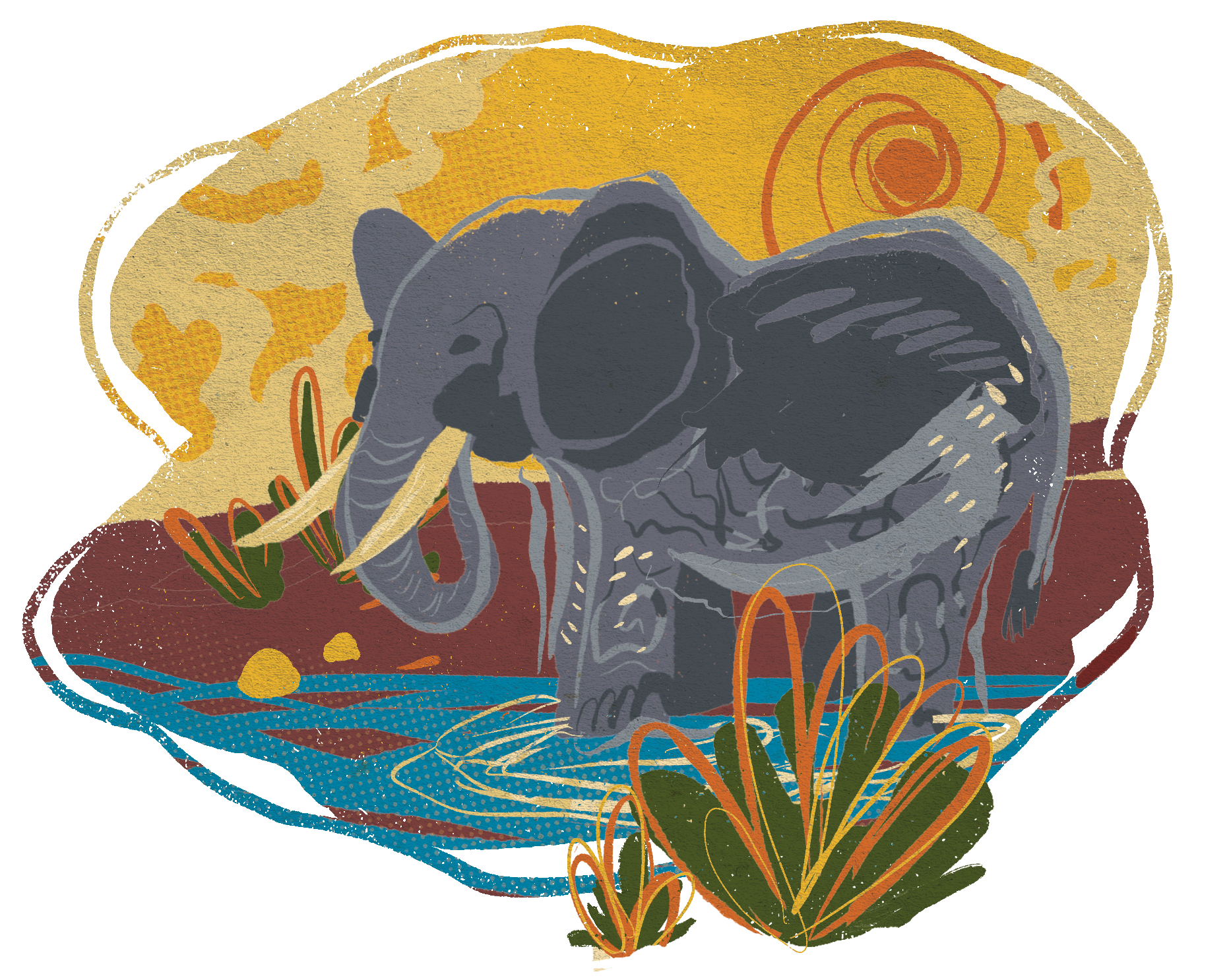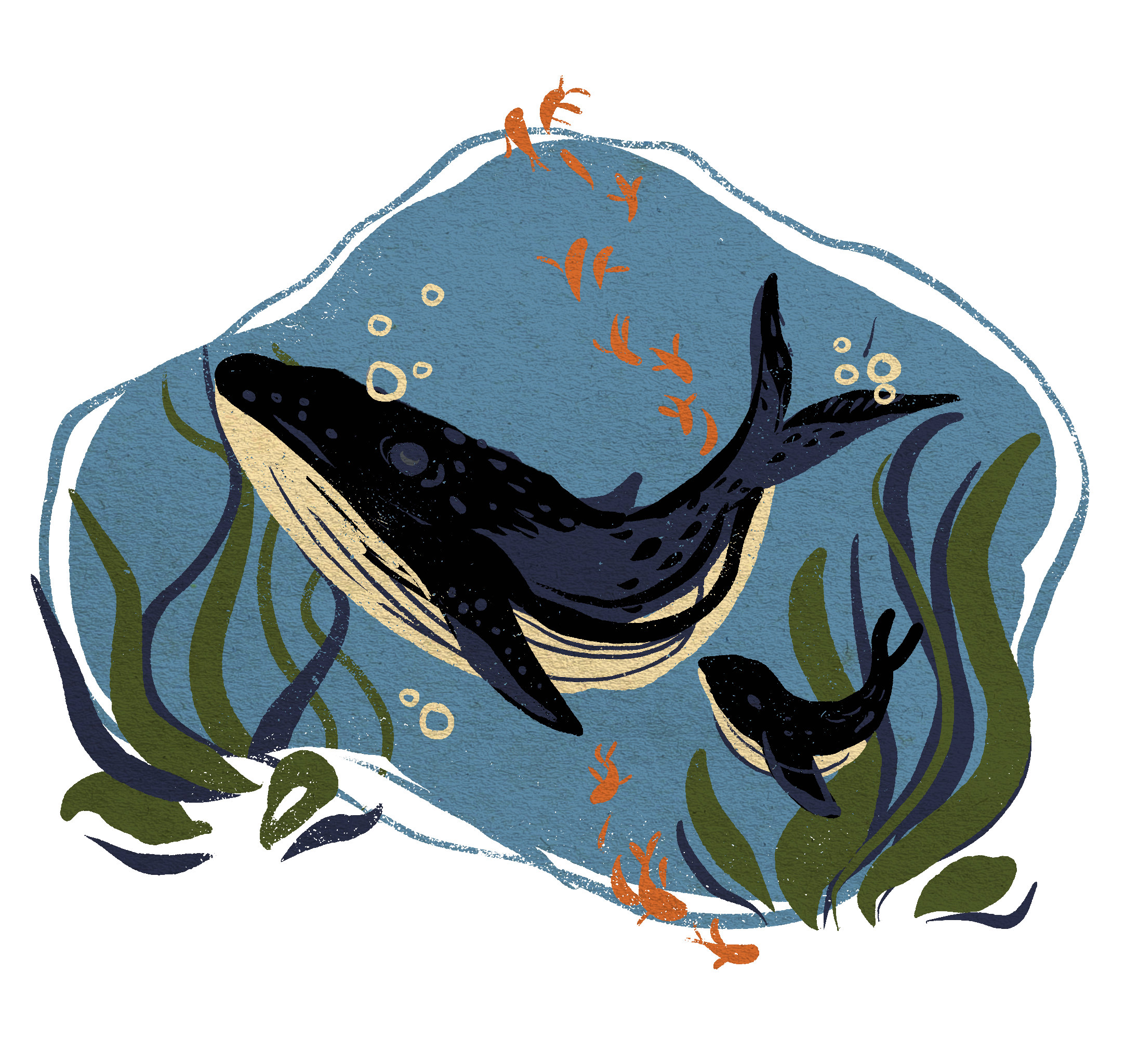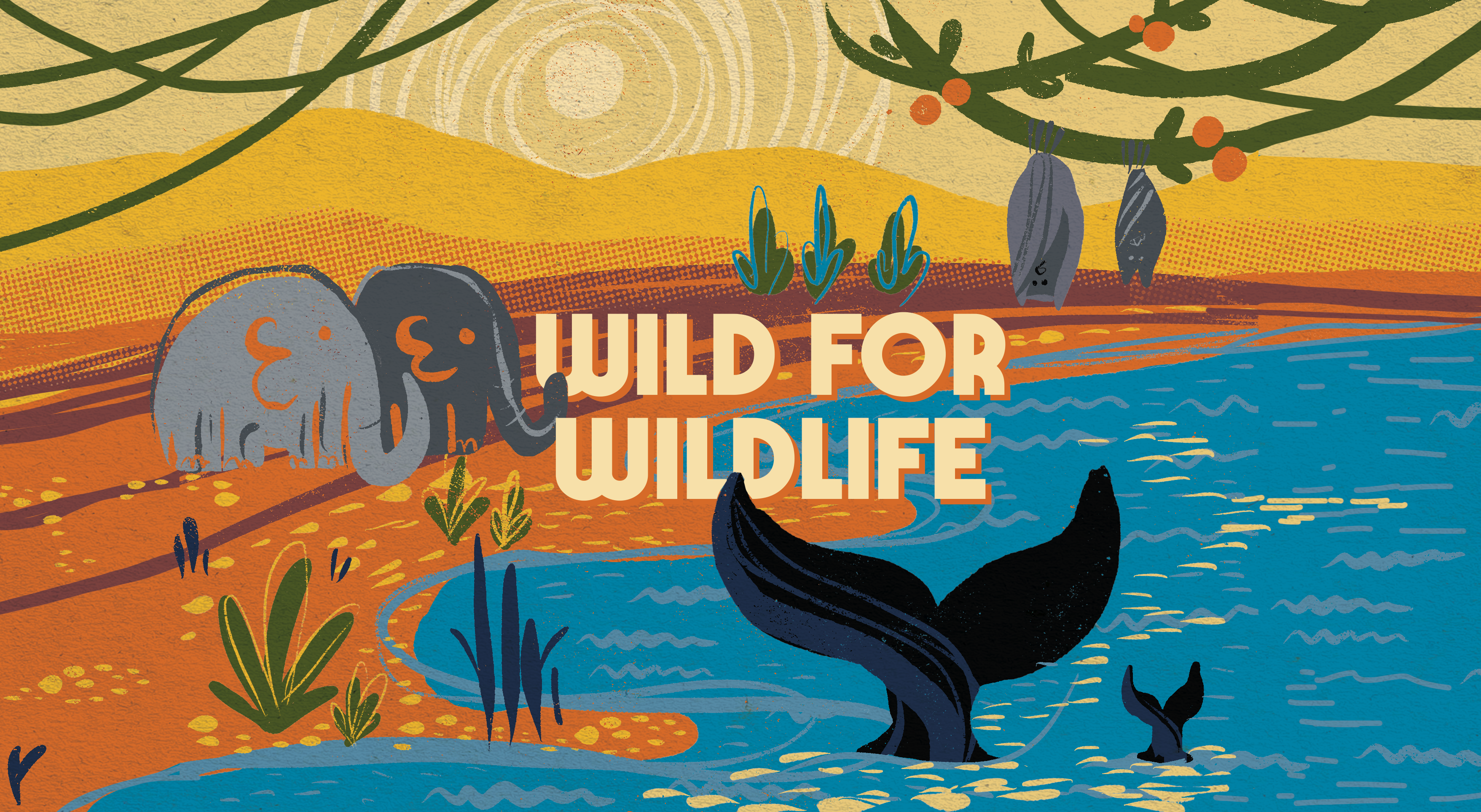
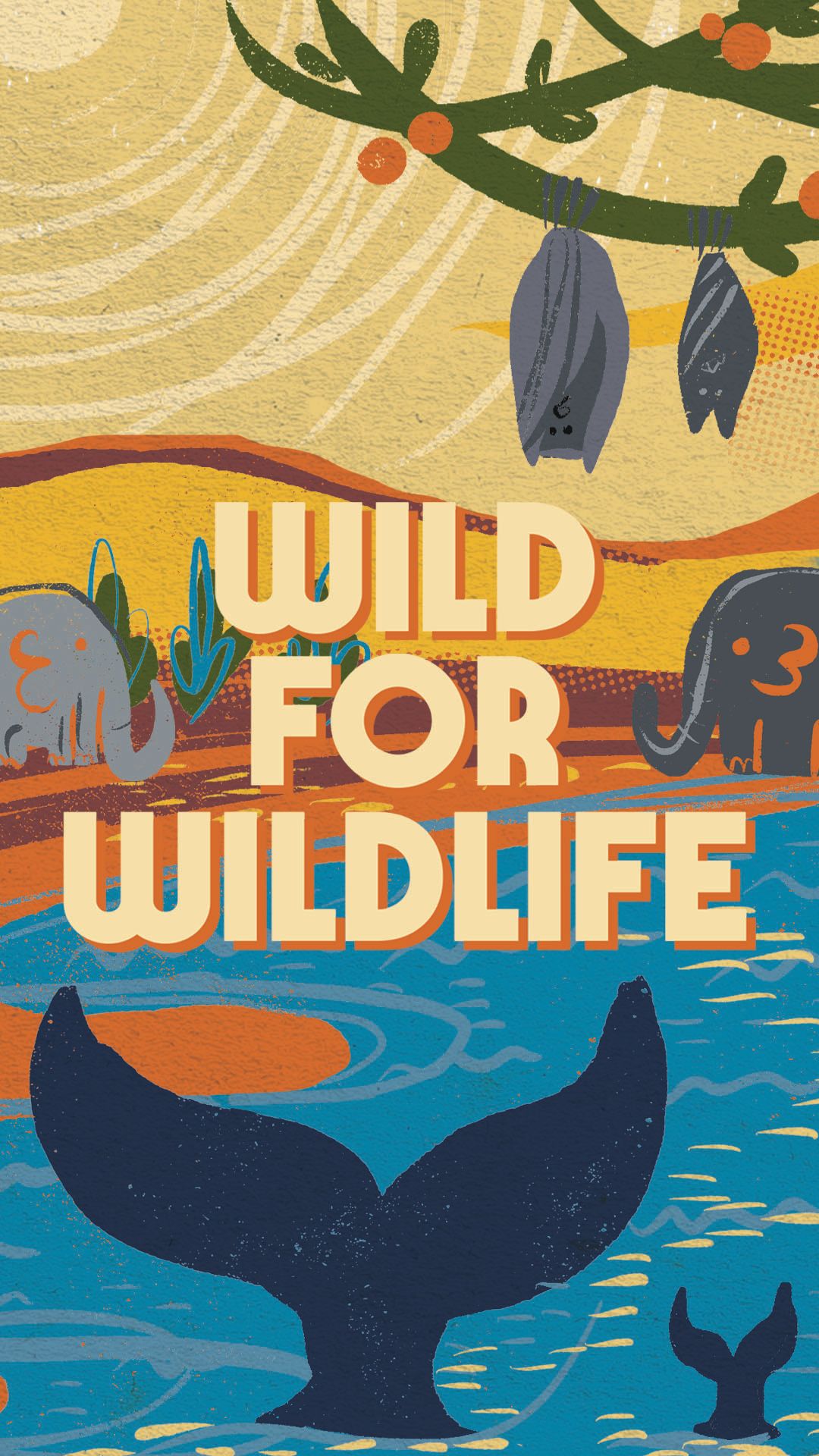
// By Aaron Martin (LA’94)
// Illustrations by Keely Houk Pompella
What does it mean to build a better world?
To many Purdue people, it means engineering, technological innovation, and laboratory-based research. But in critical locations around the globe, there are Purdue alumni pursuing equally important ways to make the world a better place—through wildlife and environmental conservation.
Some are rescuing wildlife on the high seas while others are studying animals in the field or working behind the scenes as advocates.
Through small steps and giant leaps, proud Boilermakers are fulfilling the Purdue promise of attacking some of the future’s biggest problems head-on.
// By Aaron Martin (LA’94)
// Illustrations by Keely Houk Pompella
What does it mean to build a better world?
To many Purdue people, it means engineering, technological innovation, and laboratory-based research. But in critical locations around the globe, there are Purdue alumni pursuing equally important ways to make the world a better place—through wildlife and environmental conservation.
Some are rescuing wildlife on the high seas while others are studying animals in the field or working behind the scenes as advocates.
Through small steps and giant leaps, proud Boilermakers are fulfilling the Purdue promise of attacking some of the future’s biggest problems head-on.
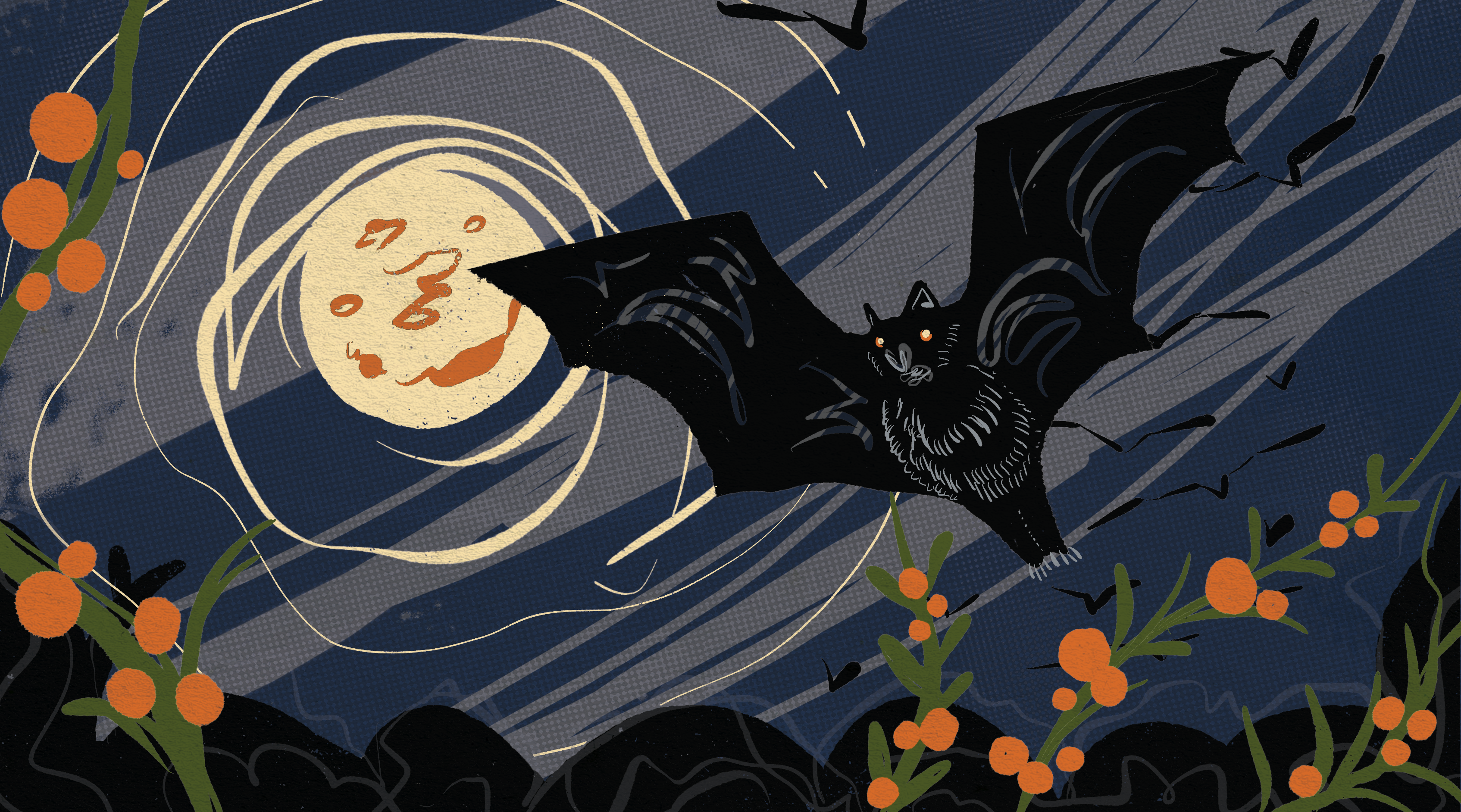
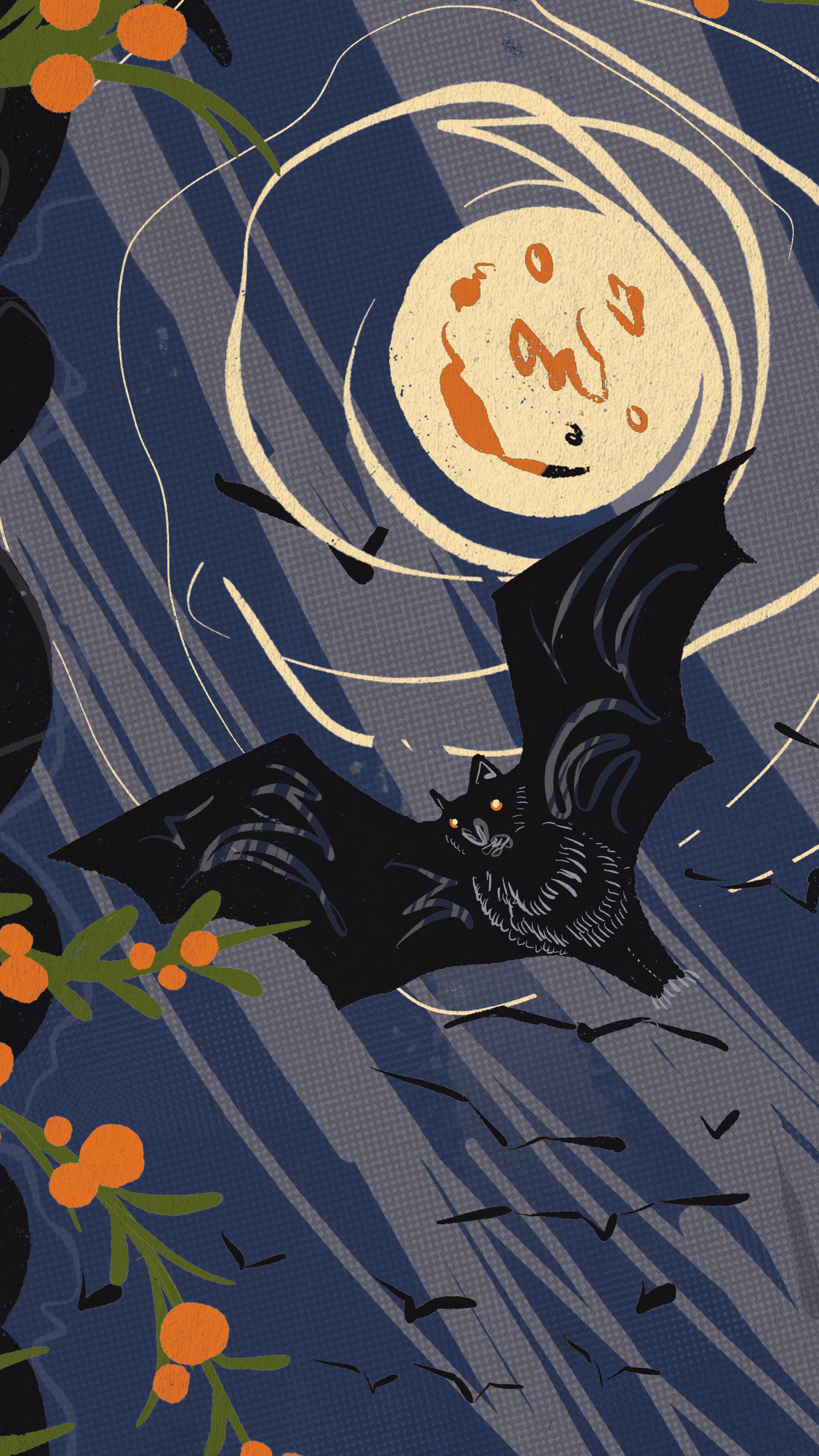
Studying Bats in Belize
Gliselle Marin (A’12), a biology PhD student and researcher at York University in Toronto, studies bats near her hometown of Belize City, Belize. The country is on the northeastern coast of Central America.
There are nearly 80 species of bats living around Belize City, and Marin’s research focuses on the dietary flexibility of these bats as their habitat is threatened by agricultural development. Three times each year—during the fruiting, flowering, and resource-deprivation seasons—Marin collects DNA and fecal samples from bats living in the forest near the city and in the more distant jungle.
Marin’s specific goal is to determine the feeding behavior of Belize bats and how it could be impacted by agricultural encroachment. But her broader goal is to educate more Belizeans about their surrounding environment and the wildlife that lives there and to empower residents to take charge of protecting the natural legacy of their country.
“Coming from the College of Agriculture at Purdue, I’m always thinking about the connection between food and humans,” Marin says. “The two main contributors to Belize’s gross domestic product are tourism and agriculture, so there is always a sort of tension between the nature that people come to see and the agriculture we depend on. Bats are overlooked animals that we can use as an umbrella group to better understand this relationship—and as an example of why we should keep those forests protected.”
Marin, who transferred to Purdue from a small college in Canada before her junior year, earned her degree in wildlife management. She later received her master’s degree in conservation biology from Victoria University of Wellington in New Zealand and worked in conservation-related roles for various organizations before landing at York’s PhD program in 2023.
“It was a huge transition, going from such a tiny school to Purdue, but I was pleasantly surprised because the Department of Forestry and Natural Resources was a little school in itself—and I left Purdue with a really close cohort of good friends,” says Marin, who believes she is the first Belizean bat scientist ever to pursue a PhD.
“After that, it was hard to have a plan because you don’t get opportunities very easily,” she says. “I did a lot of very meaningful conservation work before and after I got my master’s degree. Then, when I decided I could make a PhD happen, I was able to lean on my Purdue professors again. For every graduate school application I completed, they would write letters of recommendation for me and encourage me to keep going.”
Even though she was at Purdue for only a short time, it was a pivotal experience.
“Purdue is where I caught the research bug,” Marin says. “I started working in the genetics and herpetology labs and decided that I wanted to keep doing research like that. Then, one of my Purdue professors helped me get my first job after graduation—and it was in bat research. So, Purdue also gave me the bat bug. I really appreciate that.”
For many years, Marin’s career focus was in general conservation rather than bats in particular. But when she realized that bats were a prime subject for conservation research in Belize, Marin went all in—going so far as to get a bat tattoo on the back of her neck.
“I got the tattoo after I went to the International Bat Research Conference in 2022,” Marin says. “I was the first Belizean to ever present at that conference. I knew then that I was going to study bats and that my research ideas were worth exploring. So, I got the tattoo because it was symbolic of another chapter of my life. I was reinspired.”
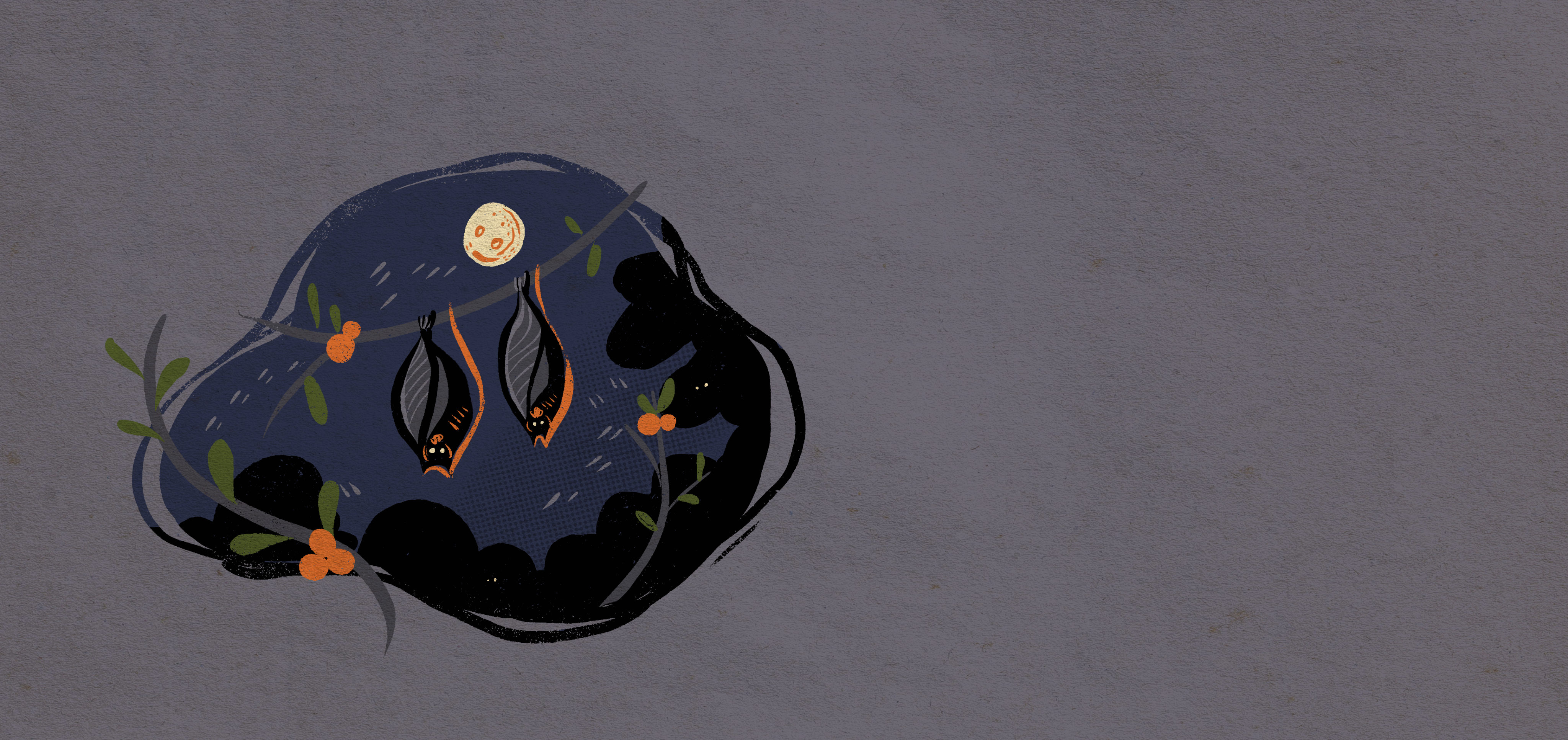
Studying Bats in Belize
Gliselle Marin (A’12), a biology PhD student and researcher at York University in Toronto, studies bats near her hometown of Belize City, Belize. The country is on the northeastern coast of Central America.
There are nearly 80 species of bats living around Belize City, and Marin’s research focuses on the dietary flexibility of these bats as their habitat is threatened by agricultural development. Three times each year—during the fruiting, flowering, and resource-deprivation seasons—Marin collects DNA and fecal samples from bats living in the forest near the city and in the more distant jungle.
Marin’s specific goal is to determine the feeding behavior of Belize bats and how it could be impacted by agricultural encroachment. But her broader goal is to educate more Belizeans about their surrounding environment and the wildlife that lives there and to empower residents to take charge of protecting the natural legacy of their country.
“Coming from the College of Agriculture at Purdue, I’m always thinking about the connection between food and humans,” Marin says. “The two main contributors to Belize’s gross domestic product are tourism and agriculture, so there is always a sort of tension between the nature that people come to see and the agriculture we depend on. Bats are overlooked animals that we can use as an umbrella group to better understand this relationship—and as an example of why we should keep those forests protected.”
Marin, who transferred to Purdue from a small college in Canada before her junior year, earned her degree in wildlife management. She later received her master’s degree in conservation biology from Victoria University of Wellington in New Zealand and worked in conservation-related roles for various organizations before landing at York’s PhD program in 2023.
“It was a huge transition, going from such a tiny school to Purdue, but I was pleasantly surprised because the Department of Forestry and Natural Resources was a little school in itself—and I left Purdue with a really close cohort of good friends,” says Marin, who believes she is the first Belizean bat scientist ever to pursue a PhD.
“After that, it was hard to have a plan because you don’t get opportunities very easily,” she says. “I did a lot of very meaningful conservation work before and after I got my master’s degree. Then, when I decided I could make a PhD happen, I was able to lean on my Purdue professors again. For every graduate school application I completed, they would write letters of recommendation for me and encourage me to keep going.”
Even though she was at Purdue for only a short time, it was a pivotal experience.
“Purdue is where I caught the research bug,” Marin says. “I started working in the genetics and herpetology labs and decided that I wanted to keep doing research like that. Then, one of my Purdue professors helped me get my first job after graduation—and it was in bat research. So, Purdue also gave me the bat bug. I really appreciate that.”
For many years, Marin’s career focus was in general conservation rather than bats in particular. But when she realized that bats were a prime subject for conservation research in Belize, Marin went all in—going so far as to get a bat tattoo on the back of her neck.
“I got the tattoo after I went to the International Bat Research Conference in 2022,” Marin says. “I was the first Belizean to ever present at that conference. I knew then that I was going to study bats and that my research ideas were worth exploring. So, I got the tattoo because it was symbolic of another chapter of my life. I was reinspired.”

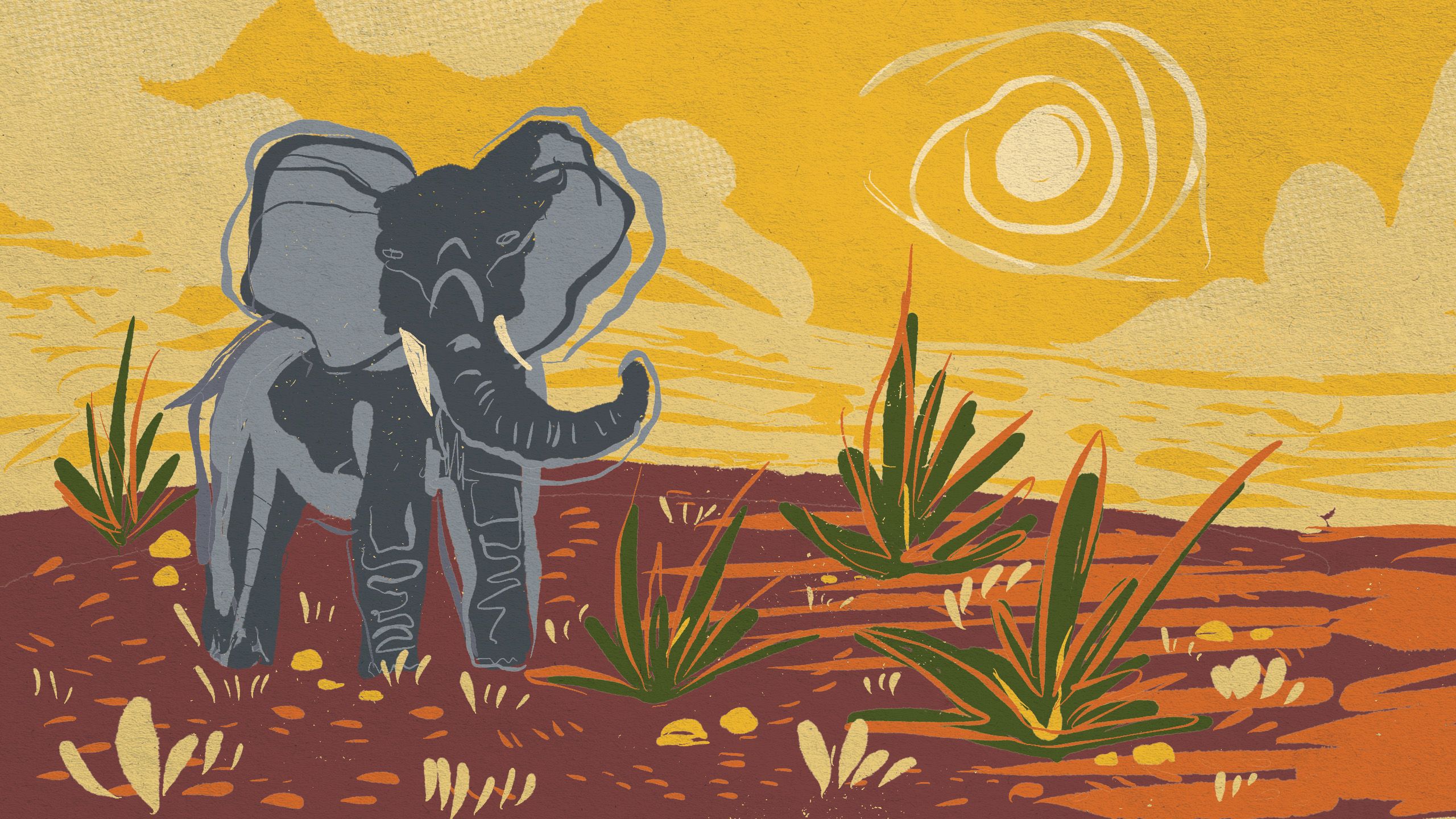
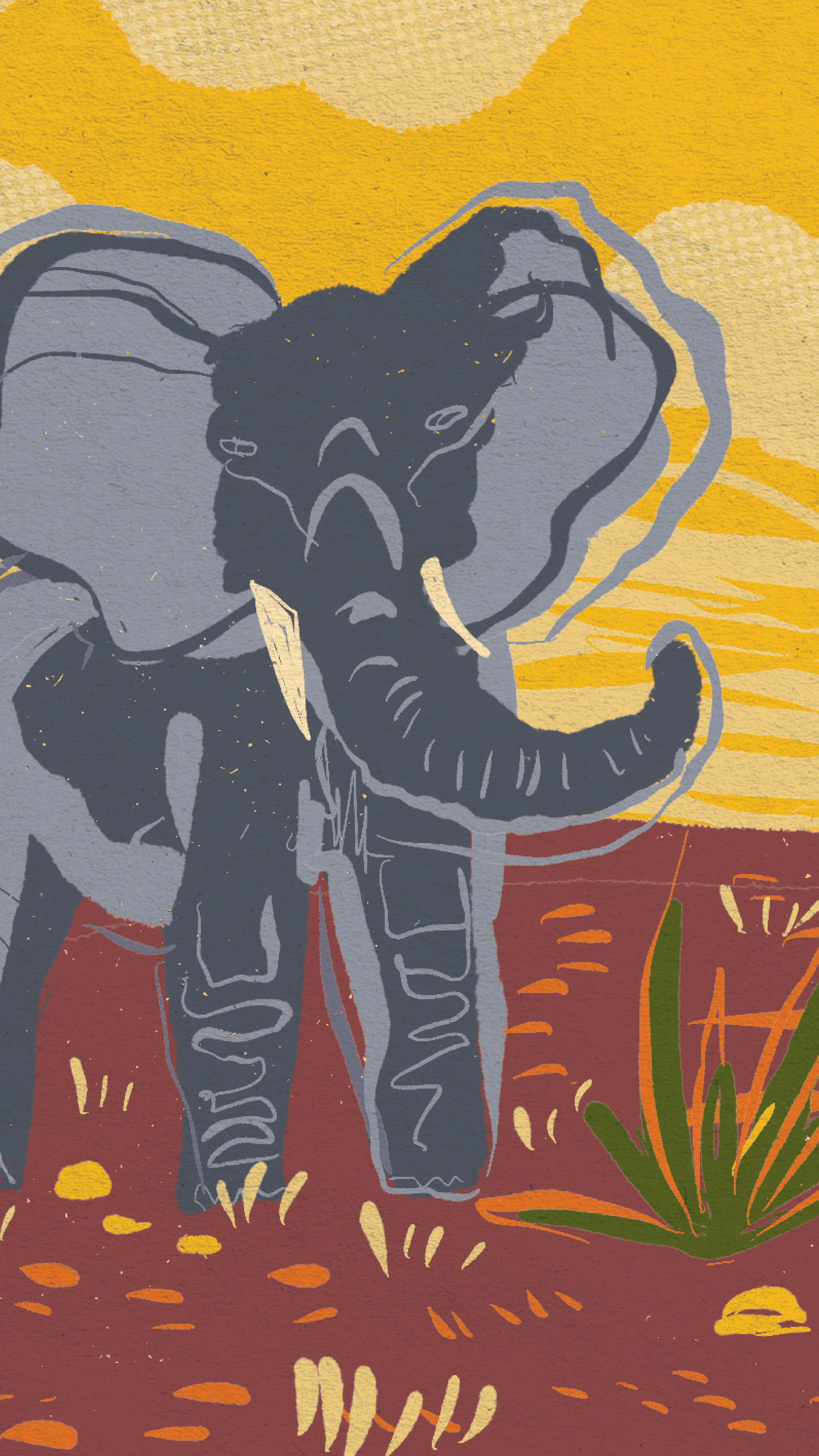
Advocating for Elephants in Africa
When Claire Bolles (LA’06) started her career in communications, the plight of elephants in Africa was not a major personal concern. That all changed when she started working at Mara Elephant Project.
The year was 2016, and Bolles was working as an independent communications consultant in her hometown of Indianapolis when she was approached about a part-time job with a small local nonprofit—Mara Elephant Project USA. The organization works to support the protection of elephants and their habitats across the Greater Mara Ecosystem, an expansive landscape in Kenya and Tanzania that’s part of the Serengeti-Mara region.
For Bolles, who studied journalism at Purdue, what started as a part-time gig managing the organization’s website and social media has turned into a career—she is now executive director for Mara Elephant Project USA—and ignited a newfound passion for wildlife conservation.
“I learned a lot from studying journalism, and I still consider myself a journalist in the sense that you’re always looking for the truth and the ‘why’ of things,” Bolles says. “Even when I was consulting, I became so entrenched with those organizations that I became passionate about whatever they were doing. That really happened with the Mara Elephant Project. I had never intended to work in the nonprofit or development space, but I couldn’t help but be inspired by the cause—especially once I educated myself.”
This education included learning about the crisis Mara elephants face through poaching, habitat loss, and human-elephant conflict in the area—and about how elephants are an ideal indicator of the health of their ecosystem.
“Focusing on elephant conservation may seem very niche, but as landscape species that need a large, continuous habitat to survive and thrive, they reflect the entire ecosystem,” Bolles says. “If the elephants fail, everything fails. So, by embracing this really iconic and well-loved animal as your cause, you can have a trickle-down effect on Kenya, then East Africa, then Africa, and then the world. What we’re doing can seem so small, but once you see how everything is interconnected, it’s easy to fall in love.”
During her visits to the Mara region, Bolles also fell in love with the locals.
“The people are so amazing, and they face so many interesting challenges—they live a life that is so different from the life we lead here in the United States,” she says. “How they navigate life—their drive and their hustle—is inspiring. They’re a throwback to a time when people just pulled up their bootstraps and got on with things. I admire their spirit.”
While Mara Elephant Project is her main cause now, Bolles has also felt a strong sense of advocacy in other areas.
The empowerment of women was always an undercurrent for Bolles, whether it was when she co-owned a fashion boutique for aspiring women or when she was a consultant working mostly with women-owned companies and organizations. Bolles also serves as ambassador for the Washington Township Schools Foundation in Indianapolis, where she works to connect private dollars with public education.
“Even if you’re not employed to champion a cause directly, you should still get involved in something that brings out your passion,” Bolles says. “That’s just part of living and being part of a community.”
Bolles always wanted to work in journalism and communications, and she chose to attend Purdue despite the fact that the university was not as well known for journalism as some of her other options. But she comes from a long line of Boilermakers, and Purdue offered one thing the other colleges did not—name recognition.
“Purdue has such wonderful prestige nationally and even internationally,” Bolles says. “Mara Elephant Project is a global organization, and I move in a lot of those circles. When you say you went to Purdue University, everybody knows it and respects it. Even at the ripe old age of 18, that was a selling point for me.”
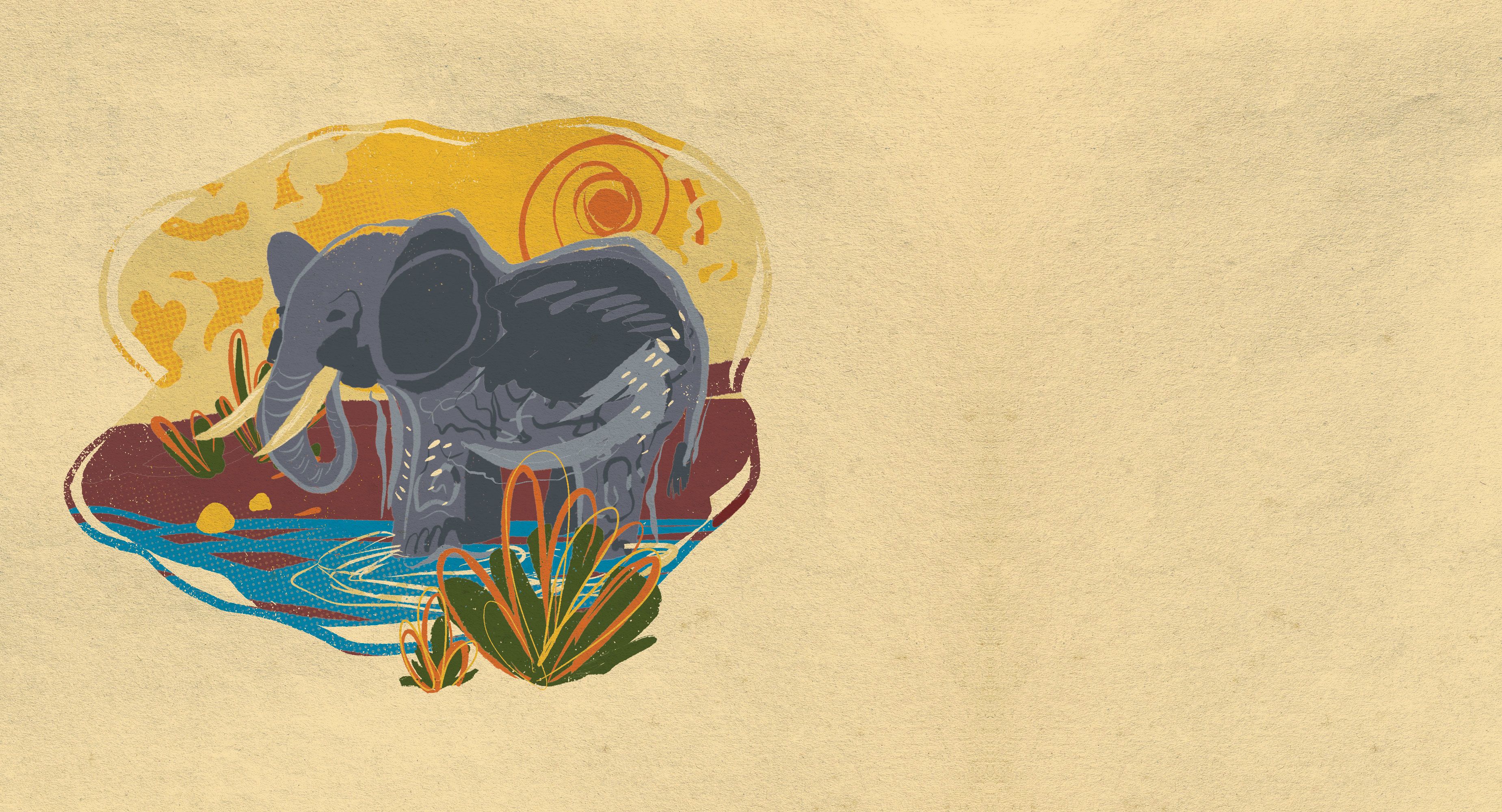
Advocating for Elephants in Africa
When Claire Bolles (LA’06) started her career in communications, the plight of elephants in Africa was not a major personal concern. That all changed when she started working at Mara Elephant Project.
The year was 2016, and Bolles was working as an independent communications consultant in her hometown of Indianapolis when she was approached about a part-time job with a small local nonprofit—Mara Elephant Project USA. The organization works to support the protection of elephants and their habitats across the Greater Mara Ecosystem, an expansive landscape in Kenya and Tanzania that’s part of the Serengeti-Mara region.
For Bolles, who studied journalism at Purdue, what started as a part-time gig managing the organization’s website and social media has turned into a career—she is now executive director for Mara Elephant Project USA—and ignited a newfound passion for wildlife conservation.
“I learned a lot from studying journalism, and I still consider myself a journalist in the sense that you’re always looking for the truth and the ‘why’ of things,” Bolles says. “Even when I was consulting, I became so entrenched with those organizations that I became passionate about whatever they were doing. That really happened with the Mara Elephant Project. I had never intended to work in the nonprofit or development space, but I couldn’t help but be inspired by the cause—especially once I educated myself.”
This education included learning about the crisis Mara elephants face through poaching, habitat loss, and human-elephant conflict in the area—and about how elephants are an ideal indicator of the health of their ecosystem.
“Focusing on elephant conservation may seem very niche, but as landscape species that need a large, continuous habitat to survive and thrive, they reflect the entire ecosystem,” Bolles says. “If the elephants fail, everything fails. So, by embracing this really iconic and well-loved animal as your cause, you can have a trickle-down effect on Kenya, then East Africa, then Africa, and then the world. What we’re doing can seem so small, but once you see how everything is interconnected, it’s easy to fall in love.”
During her visits to the Mara region, Bolles also fell in love with the locals.
“The people are so amazing, and they face so many interesting challenges—they live a life that is so different from the life we lead here in the United States,” she says. “How they navigate life—their drive and their hustle—is inspiring. They’re a throwback to a time when people just pulled up their bootstraps and got on with things. I admire their spirit.”
While Mara Elephant Project is her main cause now, Bolles has also felt a strong sense of advocacy in other areas.
The empowerment of women was always an undercurrent for Bolles, whether it was when she co-owned a fashion boutique for aspiring women or when she was a consultant working mostly with women-owned companies and organizations. Bolles also serves as ambassador for the Washington Township Schools Foundation in Indianapolis, where she works to connect private dollars with public education.
“Even if you’re not employed to champion a cause directly, you should still get involved in something that brings out your passion,” Bolles says. “That’s just part of living and being part of a community.”
Bolles always wanted to work in journalism and communications, and she chose to attend Purdue despite the fact that the university was not as well known for journalism as some of her other options. But she comes from a long line of Boilermakers, and Purdue offered one thing the other colleges did not—name recognition.
“Purdue has such wonderful prestige nationally and even internationally,” Bolles says. “Mara Elephant Project is a global organization, and I move in a lot of those circles. When you say you went to Purdue University, everybody knows it and respects it. Even at the ripe old age of 18, that was a selling point for me.”

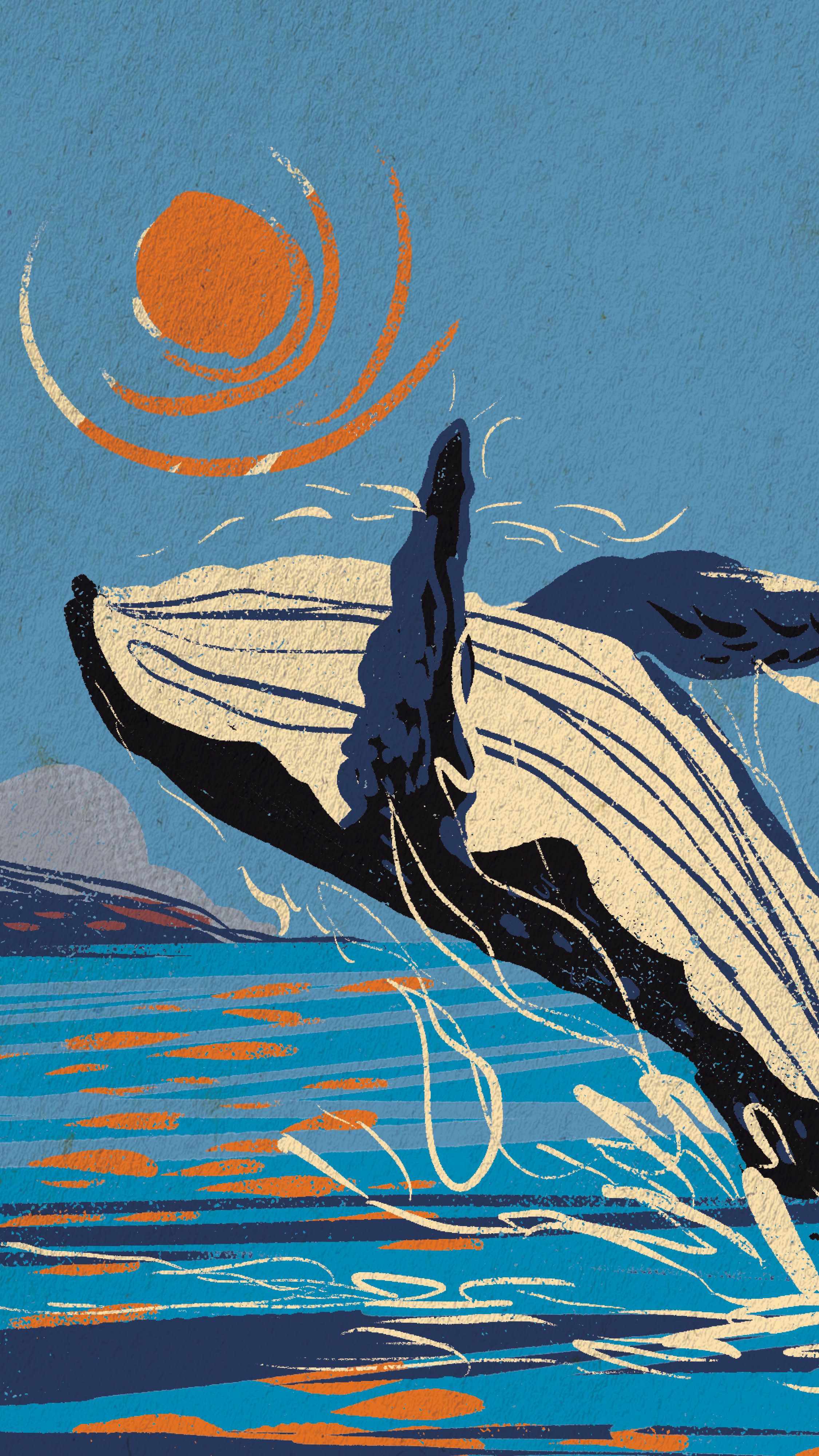
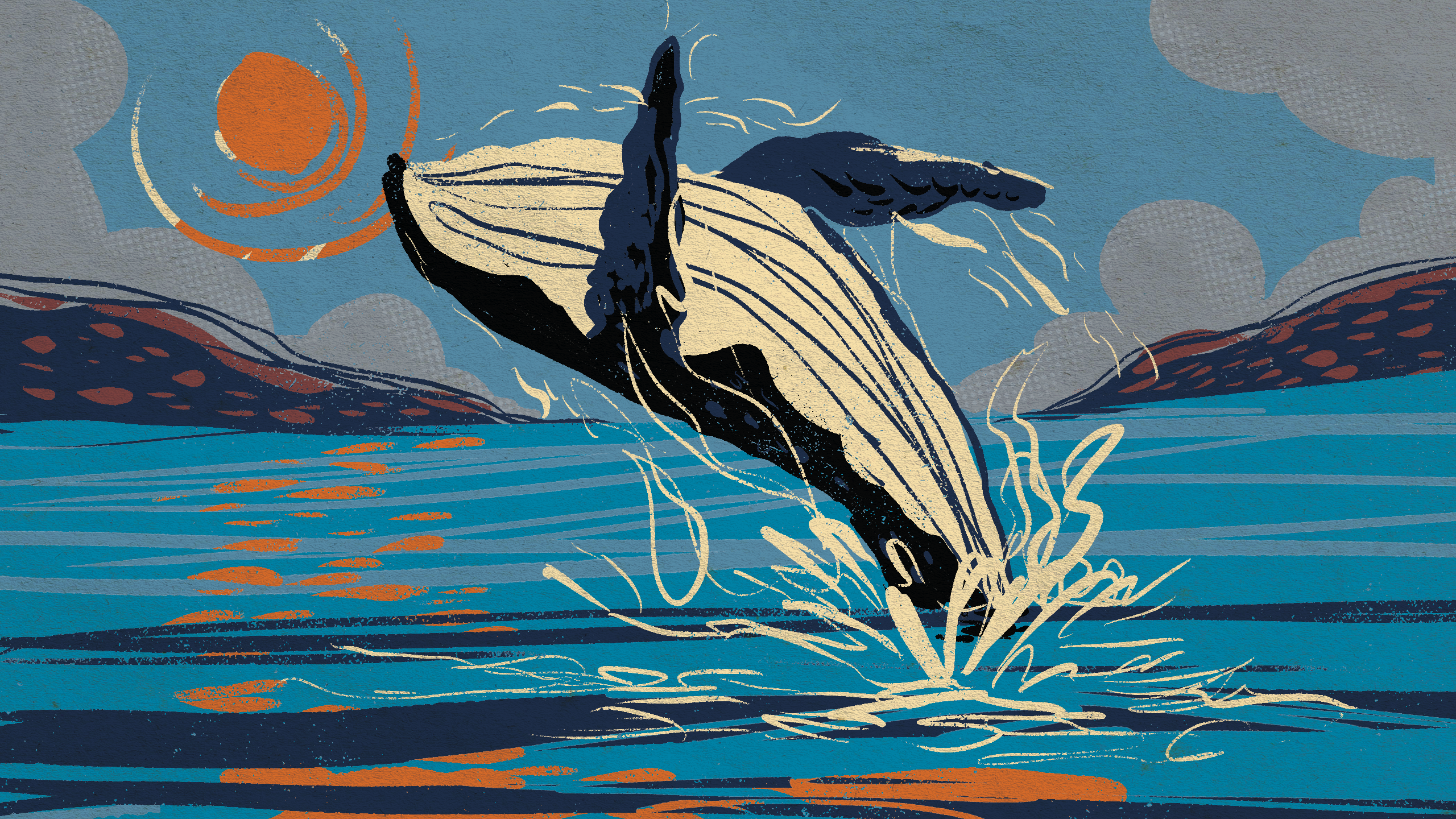
Saving the Whales
In the world of wildlife conservation, few things are more powerful or symbolic than saving whales—and that’s exactly what Kathi George (IE’97) does.
George is director of cetacean conservation biology at the Marine Mammal Center in Sausalito, California, and part of her job is to oversee entanglement response for large whales. As an investigator with the National Oceanic and Atmospheric Administration’s Marine Mammal Health and Stranding Response Program, she holds a federal permit to respond to entangled whales.
During her life on the front lines of wildlife conservation, George has been involved in six whale disentanglements, numerous entangled whale responses, and more than 50 sea lion disentanglements.
“It’s the most amazing feeling, saving a whale, and it can also be a very emotional experience,” George says. “You’re out there with a team of people, and there are lots of feelings at high levels, so being able to stay calm and do the job is critical—and it can be difficult. The first time I did it, I was just blown away.”
When George and her team are alerted about a distressed whale, the long process of locating, approaching, and gently cutting away the entanglement begins. George has been on disentanglement events that last as little as six to eight hours and others that have stretched to 30 days.
“You have to be very careful when you’re approaching the whale and when you’re actually cutting off the entanglement—you’re working with a wild animal that’s 50 feet long and weighs 50,000 pounds, so one accidental movement could injure or even kill a person,” George says. “You’re also working in small boats with soft bottoms on rough seas, so you’re bouncing around a lot. It’s crazy sometimes, and you really need to be situationally aware.”
When she isn’t literally saving whales, George conducts cetacean research and shares her data with decision- and policymakers to drive impactful conservation and management actions. Her primary focus is risk-reduction efforts to address entanglement and vessel strikes, which are two of the major threats to large whales globally.
“We work with everyone from individual fishermen to leaders in the maritime and fishing industries to state and federal agencies to address these problems,” George says. “Even though I’m from Crown Point, Indiana, I’ve been in love with the ocean my whole life. The ocean is an area where humans and wild animals coexist in a very physical way, so it’s important that we find solutions.”
George hasn’t always been a conservation hero—she began her career as a business analyst and web project manager—but she slowly turned a personal passion for wildlife conservation into her life’s work.
Beginning in 2002, George spent more than a decade volunteering with the Marine Mammal Center. She also helped start a nonprofit that provided logistical and communication support for whale-rescue organizations and individuals.
George worked in several conservation-related positions along the way, but she didn’t join the ranks of full-time conservation professionals until she took a job as a program manager with the Oceanic Society in 2014. She ultimately returned to the Marine Mammal Center in 2019.
“I really fell in love with the ocean and the natural world after I started volunteering and learned to scuba dive, so I began to think about how I could take my career and do something from a conservation perspective,” George says. “I spent some 20 years kind of living this double life of working on one side and fulfilling my passion on the other, and then things finally came together.”
George rejoined the center as a project manager for global response. She rose to director of field operations and response in 2021 and became the director of cetacean conservation biology in 2023.
“What I do really takes an interdisciplinary approach because it involves a lot of research and technology, so my Purdue degree has served me well,” George says. “I was drawn to Purdue because I knew I liked math and science, and I knew I could do a lot with a Purdue engineering degree. I was also interested in the ocean, but I didn’t think I could make a career out of that. As it turns out, I found a way to pull the two things together in a meaningful way.”
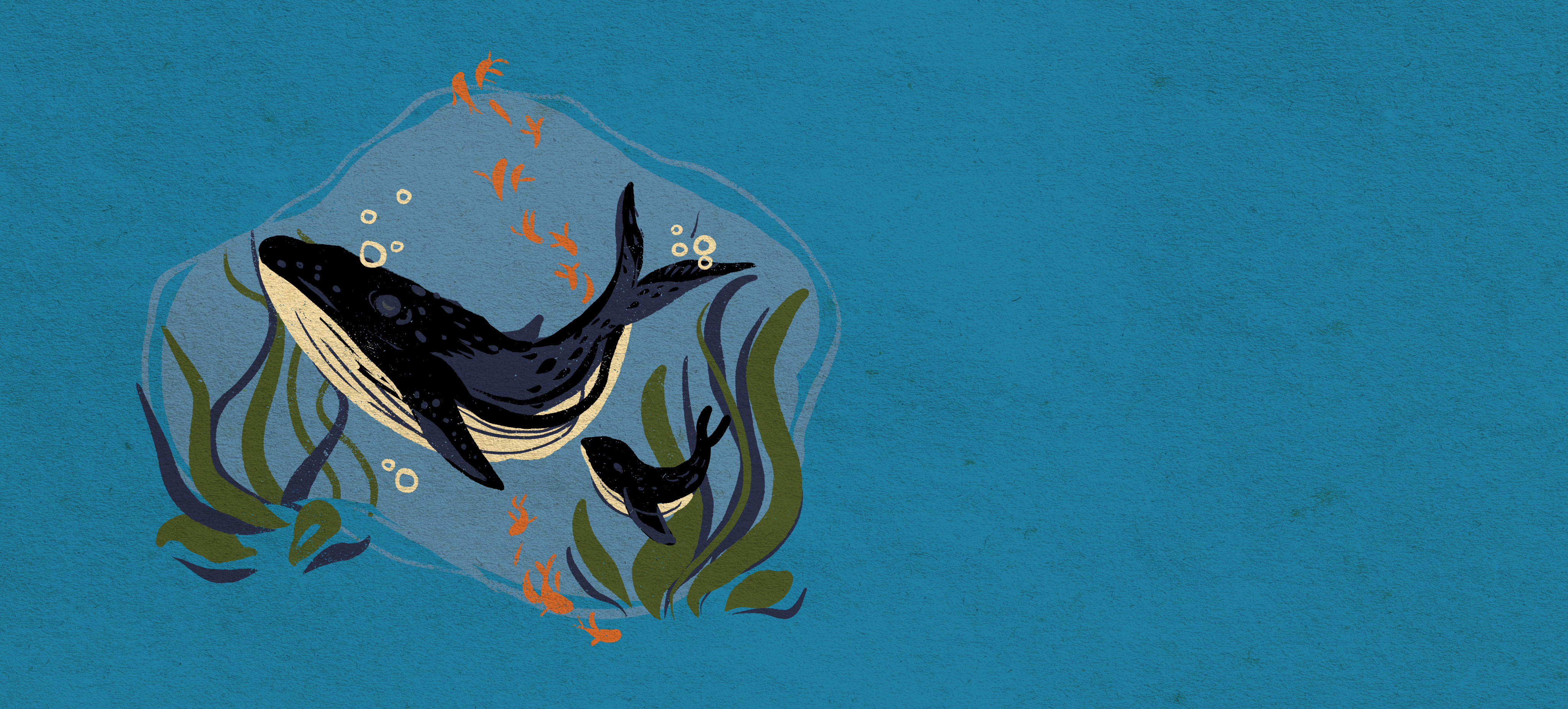
Saving the Whales
In the world of wildlife conservation, few things are more powerful or symbolic than saving whales—and that’s exactly what Kathi George (IE’97) does.
George is director of cetacean conservation biology at the Marine Mammal Center in Sausalito, California, and part of her job is to oversee entanglement response for large whales. As an investigator with the National Oceanic and Atmospheric Administration’s Marine Mammal Health and Stranding Response Program, she holds a federal permit to respond to entangled whales.
During her life on the front lines of wildlife conservation, George has been involved in six whale disentanglements, numerous entangled whale responses, and more than 50 sea lion disentanglements.
“It’s the most amazing feeling, saving a whale, and it can also be a very emotional experience,” George says. “You’re out there with a team of people, and there are lots of feelings at high levels, so being able to stay calm and do the job is critical—and it can be difficult. The first time I did it, I was just blown away.”
When George and her team are alerted about a distressed whale, the long process of locating, approaching, and gently cutting away the entanglement begins. George has been on disentanglement events that last as little as six to eight hours and others that have stretched to 30 days.
“You have to be very careful when you’re approaching the whale and when you’re actually cutting off the entanglement—you’re working with a wild animal that’s 50 feet long and weighs 50,000 pounds, so one accidental movement could injure or even kill a person,” George says. “You’re also working in small boats with soft bottoms on rough seas, so you’re bouncing around a lot. It’s crazy sometimes, and you really need to be situationally aware.”
When she isn’t literally saving whales, George conducts cetacean research and shares her data with decision- and policymakers to drive impactful conservation and management actions. Her primary focus is risk-reduction efforts to address entanglement and vessel strikes, which are two of the major threats to large whales globally.
“We work with everyone from individual fishermen to leaders in the maritime and fishing industries to state and federal agencies to address these problems,” George says. “Even though I’m from Crown Point, Indiana, I’ve been in love with the ocean my whole life. The ocean is an area where humans and wild animals coexist in a very physical way, so it’s important that we find solutions.”
George hasn’t always been a conservation hero—she began her career as a business analyst and web project manager—but she slowly turned a personal passion for wildlife conservation into her life’s work.
Beginning in 2002, George spent more than a decade volunteering with the Marine Mammal Center. She also helped start a nonprofit that provided logistical and communication support for whale-rescue organizations and individuals.
George worked in several conservation-related positions along the way, but she didn’t join the ranks of full-time conservation professionals until she took a job as a program manager with the Oceanic Society in 2014. She ultimately returned to the Marine Mammal Center in 2019.
“I really fell in love with the ocean and the natural world after I started volunteering and learned to scuba dive, so I began to think about how I could take my career and do something from a conservation perspective,” George says. “I spent some 20 years kind of living this double life of working on one side and fulfilling my passion on the other, and then things finally came together.”
George rejoined the center as a project manager for global response. She rose to director of field operations and response in 2021 and became the director of cetacean conservation biology in 2023.
“What I do really takes an interdisciplinary approach because it involves a lot of research and technology, so my Purdue degree has served me well,” George says. “I was drawn to Purdue because I knew I liked math and science, and I knew I could do a lot with a Purdue engineering degree. I was also interested in the ocean, but I didn’t think I could make a career out of that. As it turns out, I found a way to pull the two things together in a meaningful way.”

JOIN THE COOLEST
CREW ON CAMPUS!
If your dog or cat perks up when they hear “Hail Purdue!”, it’s time to make them an honorary Boilermaker as a member of Pete’s Pets Club!

JOIN THE COOLEST CREW
ON CAMPUS!
If your dog or cat perks up when they hear “Hail Purdue!”, it’s time to make them
an honorary Boilermaker as a member of Pete’s Pets Club!



